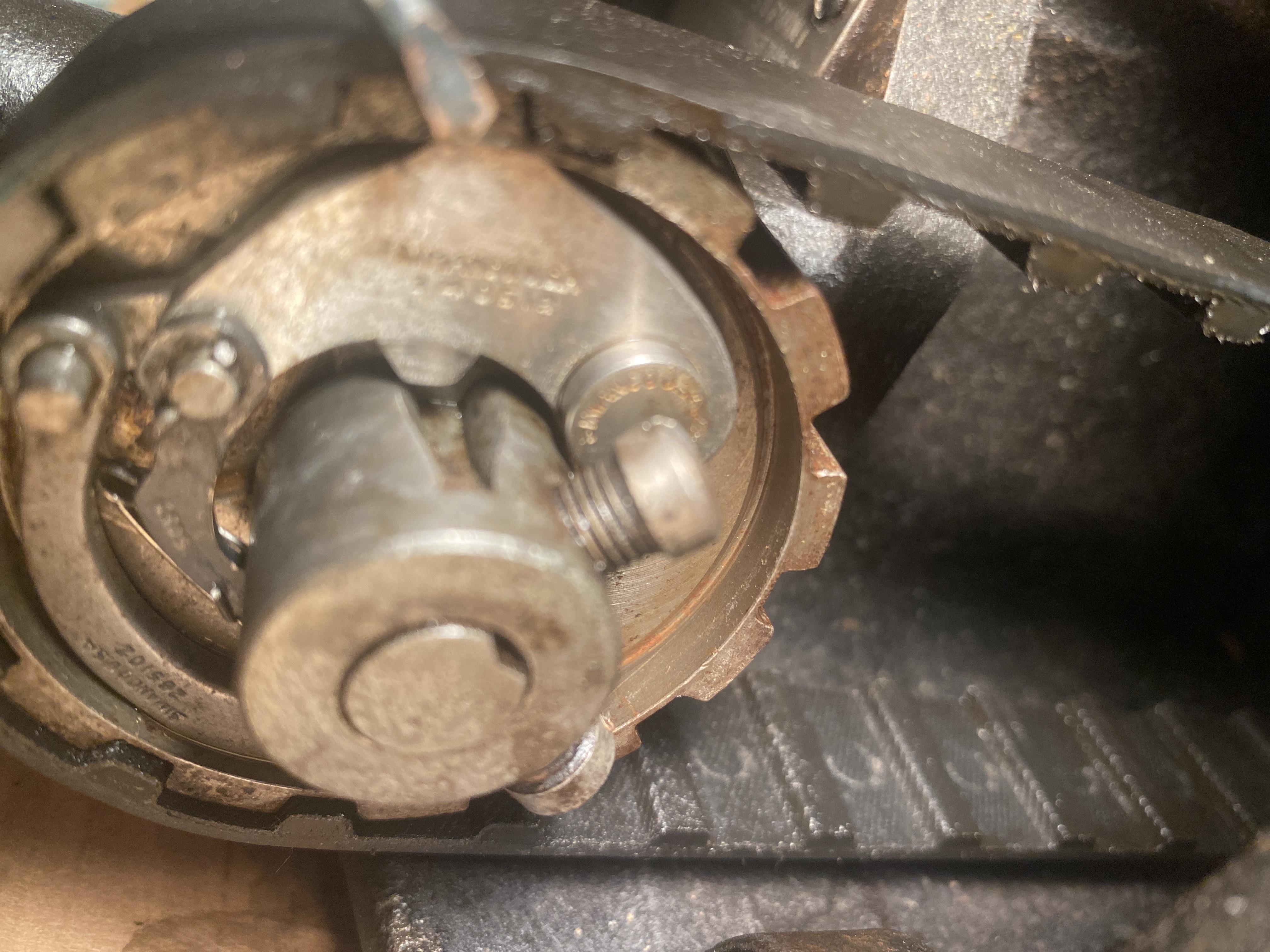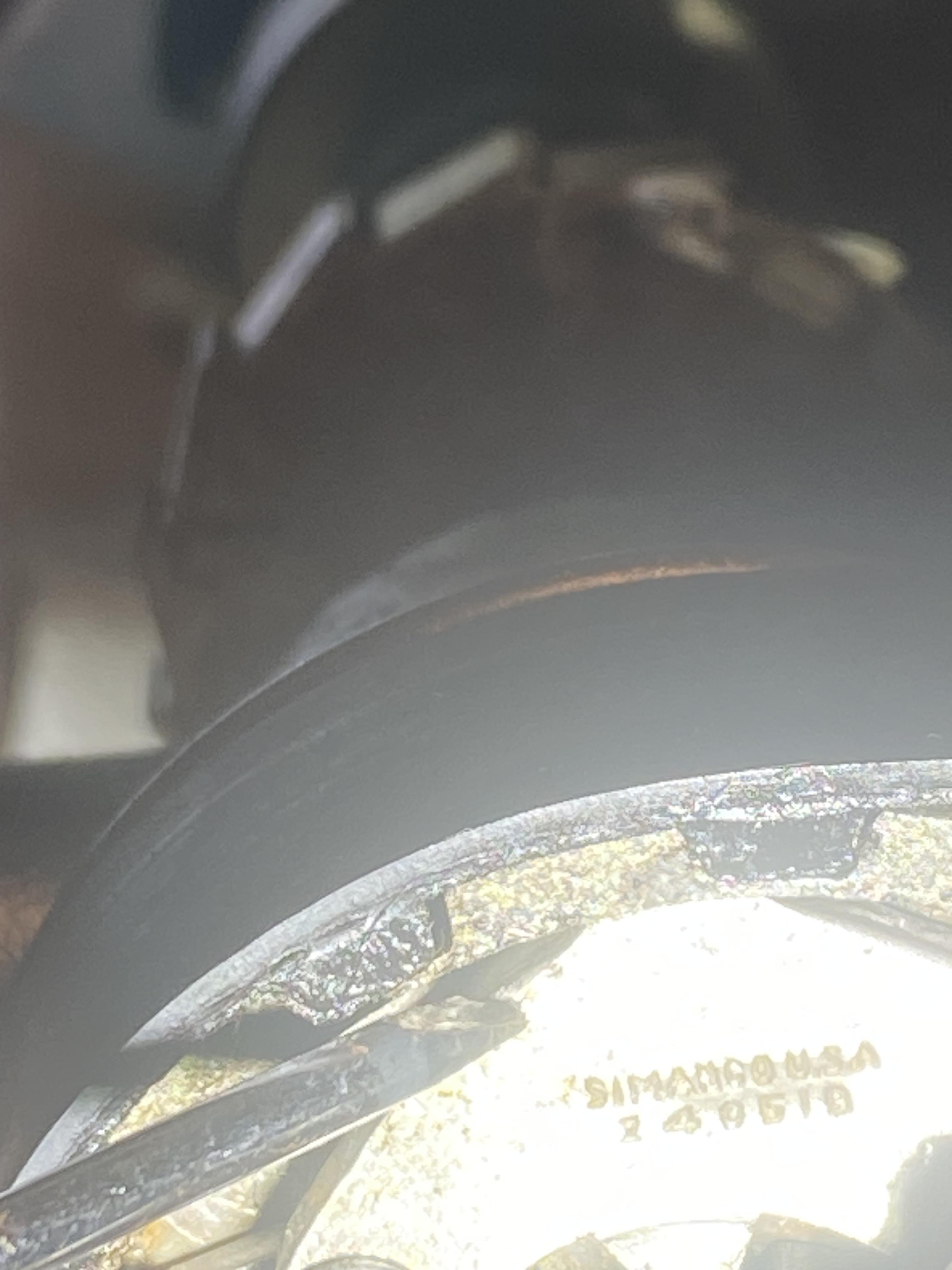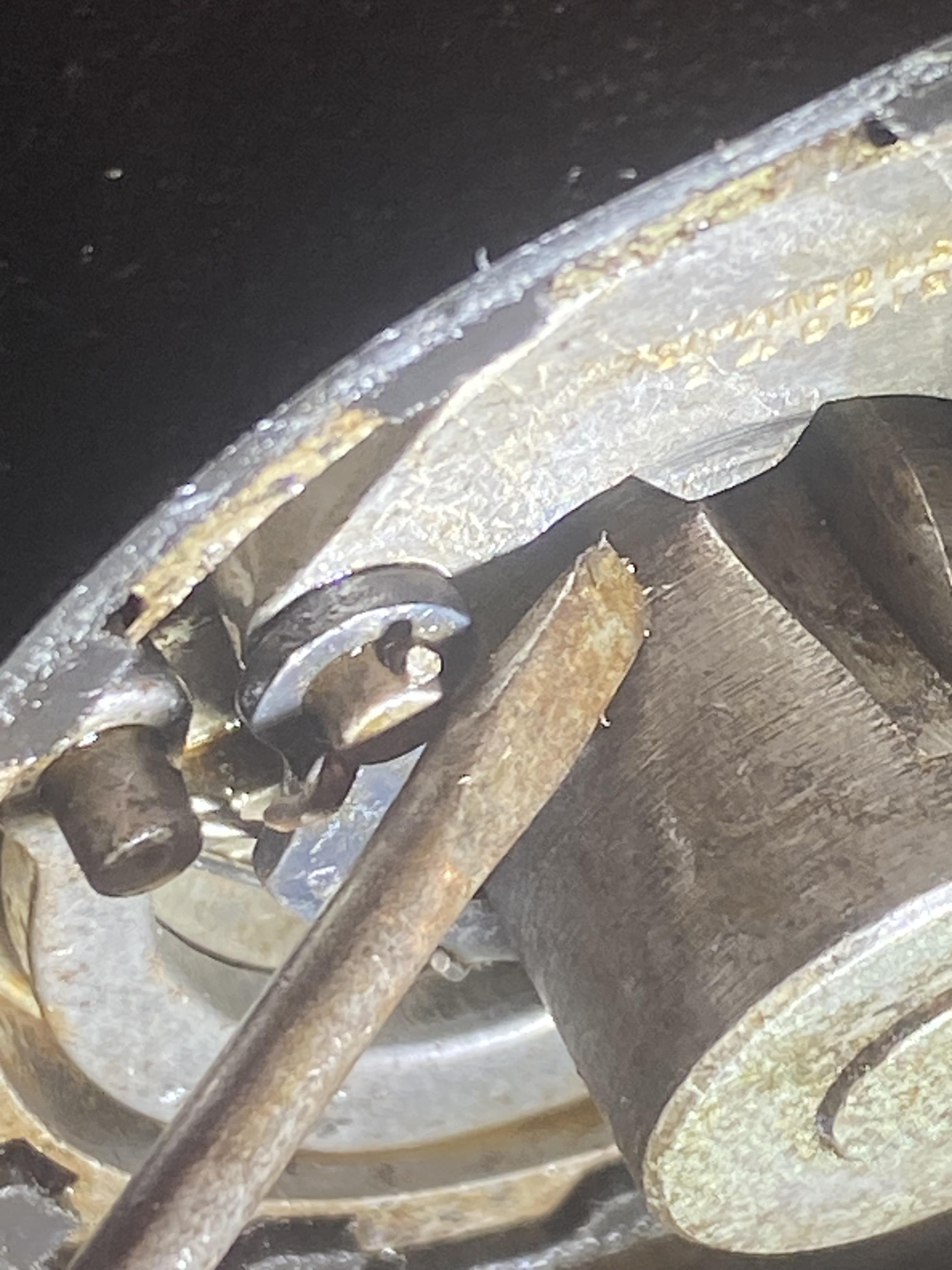All Activity
- Past hour
-
-
Personally I would remove the cotter pin on the catch arm pivot point, the catch arm that catches the side of shaft and see what going on. Maybe the hole in the larger piece at that point has worn the pin or the hole in the larger piece has been enlarged. What do you have to lose? kgg
- Today
-
Thanks, Bob for all your help I did engage the shaft, but unfortunately, it did not move or change the position of the piece of metal that’s supposed to go into the slot see picture above even after moving the wheel towards me and or away from me
-
Like I said b4,push the button & while holding it down push the handwheel backwards & it'll snap back in.
-
Photo 2 I believe that there should be a space between the outer wall and the plate but correct me if I am wrong. It seems stuck up there.
-
-
We pushed button. It is in gear. Shaft is moving perfectly but we still have the problem in the video. The little piece ( don’t know what it is called) is not going into the slot the way it is suppose to. It is just on the edge of it.
-
Thank you cowboy Bob and kgg. We did engage the button. That was the first thing the repair guy did. Fixed the button and engaged it. Then he went to clutch area and that is when everything stopped. He fixed and tweaked everything else but did not feel comfortable taking apart clutch. We have been oiling for two days. Here is where we are at. Thank you for any help.
-
Good inspiration. LOL, all putty knives should look so good. Good suggestion to experiment with pieces for heat treating. I've found that in a lot of cases old saw blades are made of better steel than new ones. Good inspiration. LOL, all putty knives should look so good. Good suggestion to experiment with pieces for heat treating. I've found that in a lot of cases old saw blades are made of better steel than new ones. Good inspiration. LOL, all putty knives should look so good. Good suggestion to experiment with pieces for heat treating. I've found that in a lot of cases old saw blades are made of better steel than new ones. Good inspiration. LOL, all putty knives should look so good. Good suggestion to experiment with pieces for heat treating. I've found that in a lot of cases old saw blades are made of better steel than new ones. Oops. Sorry about the multiple taps. But then, it does hammer the message home.
-
Hi Bob This is Ron Nancy’s husband. Thank you for replying. I did watch the same video Singer Safety Clutch above several times. Here is the problem I’m still having. Any help will keep me out of the dog house 😂
-
Finally a good purchase...I think!
Handstitched replied to stitchgearhead's topic in Leather Sewing Machines
800 euros is around $1500 au. That's a pretty good haul of goodies 👌 I'd be like a kid at Christmas, I just want to play HS -
Moved your post to Dyes, Antiques, Stains, Glues, Waxes, Finishes and Conditioners Check through this forum. Mainly, you will find that you need to buff the purse with a clean white soft cloth until it stops transferring dye (rub off) to the white cloth. Then it needs to be sealed with a finish product that could be a lacquer and water based sealer. You find various names as you peruse this forum.
-
Make sure you hold back the starting threads, or at least the top thread, for about three stitches. Ensure that the needle isn't too small. Move up a size or two to see if that helps bring the top thread up into the leather. Choose the correct size needle for the thread combination. Do standard troubleshooting stuff. Start by checking the hook to needle timing. Adjust the hook or needle bar height if it has been thrown out by the impact of sewing rubber. Remove the throat plate and clean off any residue on the bottom of it. Also, check the feed dog and clean it if necessary. Re-time the machine. Change the needle to a leather point needle. Make sure you've threaded it correctly and that the top thread stays inside the tension disks and doesn't lift up as you sew. Center the check spring if it was turned to one end or the other end. Finally, make sure that there is a modicum of tension on the bobbin thread; not too much or too little.
-
It's not rusted,don't take it apart! Just re-engage the safety clutch & you'll be sewing again.
-
Walking around the supermarket yesterday I noticed that they use a thick dense cardboard between the layers of bottled water (and other stuff). There was loads of it and I thought it would be ideal for pattern making and laser practice. If it's rolls you're after they're around 3ft square so would make around a 12inch roll with a bit of tape or string.
-
You can buy a couple of harness needles and some tiger thread, or you can use a speedy stitcher. If the sheath is machine sewn, the speedy stitch will work fine. personally, if you're doing these repairs a lot then go with some john James harness needles an awl, both diamond and round, some tiger thread in various colors and sizes. also some contact cement to reglue, then of course the cleaning,conditioning and buffing supplies to make it shine.
-
I moved this over to "Sewing Leather", where it should get some attention.
-
I was just showing the tubes as a way to help organize. I wouldn't put tubes on the door, but maybe some small basket type shelves like this:
-
I work for a food packaging company. The packaging film comes on the cardboard cores. The best place to find it would be checking with vinyl shops that do banners, or car wraps. They will be happy to let you have the cores.
-
K Smith joined the community
-
Beautiful!
-
Thanks. I use the Old City motif a lot, working free hand so that each one comes out a bit different depending on the size and shape of the piece. The mark on the extreme left, if you turn the tag so that the marks are vertical, are my initials in cursive Hebrew.
-
Here I am, doing leatherwork again after a long hiatus. I had a one man shop in a college town from 1972 to 1975, then decided I needed a steadier income. Now I'm retired, living in Israel, where leather and supplies are not easy to come by. I was self-taught and am learning some skills that I never mastered before. You.tube and forums like this one make that a lot easier than it was 50 years ago. Constraints challenge us to grow, and I have a few new ones here. I'm aiming at smaller projects now, like wallets and card cases, since I'm limited to whatever leather friends can bring me in small quantities when they visit from the U.S. Chemical dye for leather isn't available, even from Amazon (and my doctor doesn't want me near them), so I've been using vinegaroon (the recipe here is fantastic), coffee, shoe creme, olive oil and similar substances. If you hear of a new "kitchen table" recipe for dye, please pass it along. And I can't even think of trying to sell my work or I'd have to register to collect VAT. When I first started, I hated saddle stitching. I'd put my handbags together by lacing them with strips cut from the same leather as the bag itself, until I treated myself to a Consew 226. These days I'm saddle stitching nearly everything and have gotten a lot better at it. But I still miss my Consew.






.thumb.jpg.6e903dd66163ad5672f00f144058c571.jpg)




